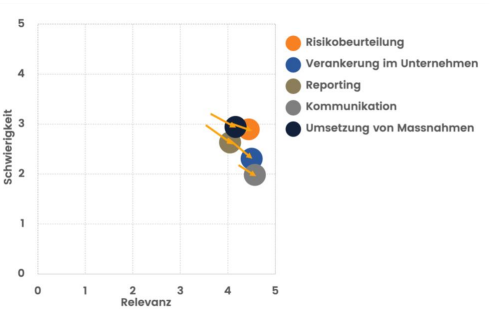In a previous News Article, a survey was circulated aimed at defining the challenges encountered by firms motivated to integrate sustainability in their business practices. ZHAW thanks the 125 firms that took the time to respond to the questionnaire.
The research shows that a strategic orientation towards sustainability is a key factor that leads firms to adopt the low-carbon technologies at the heart of SWEET-DeCarbCH.
The key findings are:
- Previous experiences of a firm with sustainability integration can be reliably described with 3 variables:
- degree of sustainability integration,
- risk perception, and
- past challenges.
- 4 clusters of sustainability-affine firms emerge, each with different pain points:
- “Seasoned” firms with a strong degree of sustainability integration and low risk perception are primarily seeking to establish partnerships with firms that share the same sustainability goals.
- “Advanced” firms with a strong degree of sustainability integration and high risk perception are interested in managing risks arising e.g. from new customer requirements or regulatory developments.
- “Undecided” firms see sustainability efforts, such as non-financial reporting, as a necessary hassle without much benefit from themselves. However, they are willing to implement concrete measures if a clear business case is evident.
- “Seeking” firms are motivated to do more, but struggle to connect profitability with their environmental or social goals. Proce sensitivity of customers remains a key challenge.
(by partner crowda Sustainability GmbH)
